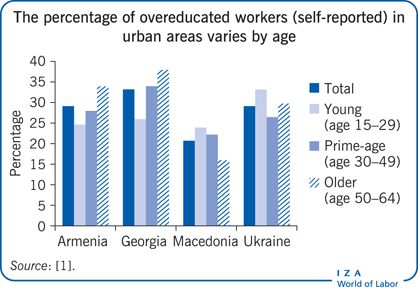Elevator pitch
Large imbalances between the supply and demand for skills in transition economies are driven by rapid economic restructuring, misalignment of the education system with labor market needs, and underdeveloped adult education and training systems. The costs of mismatches can be large and long-lasting for workers, firms, and economies, with long periods of overeducation implying a loss of human capital for individuals and ineffective use of resources for the economy. To make informed decisions, policymakers need to understand how different types of workers and firms are affected by overeducation and skill shortages.

Key findings
Pros
High educational attainment of the population is an attractive feature for foreign investment and innovation.
Some degree of skill mismatch is inevitable in an era of rapid technological change and globalization.
Overeducated workers may represent an opportunity for productivity gains for firms and regions.
Overeducation is not a concern if it is a short-term mismatch that affects mainly young people.
Successful skill development calls for cooperation of education systems, labor market institutions, employers, and individuals.
Cons
High levels of formal education do not necessarily translate into high levels of up-to-date productive skills.
The inadequacy of workers’ skills affects firm performance, technological investments, and competitiveness.
Long periods of overeducation imply a loss of human capital for individuals and ineffective use of resources for the economy.
Older workers risk being trapped in jobs with low educational requirements because of skill obsolescence.
Improving career guidance and the quality and relevance of formal education is necessary but not sufficient for reducing skill mismatches.